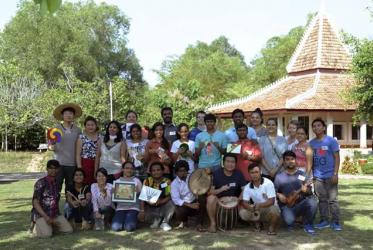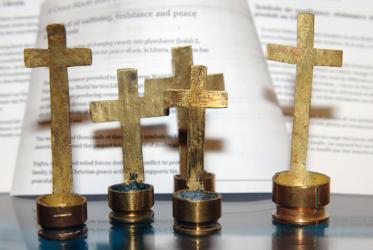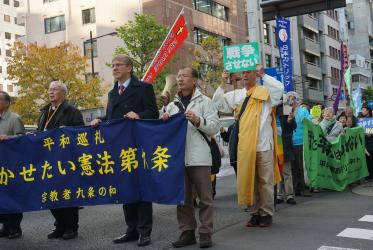Displaying 61 - 80 of 97
17 November 2015
Climate pilgrimage toward COP21 pauses in Geneva
05 November 2015
“The world must be freed of nuclear weapons”
06 August 2015
WCC encourages churches to pray on Hiroshima Day
06 August 2015
The new Arms Trade Treaty: a life-saving gift this Christmas
19 December 2014
Momentum builds for ban on nuclear weapons
16 December 2014










